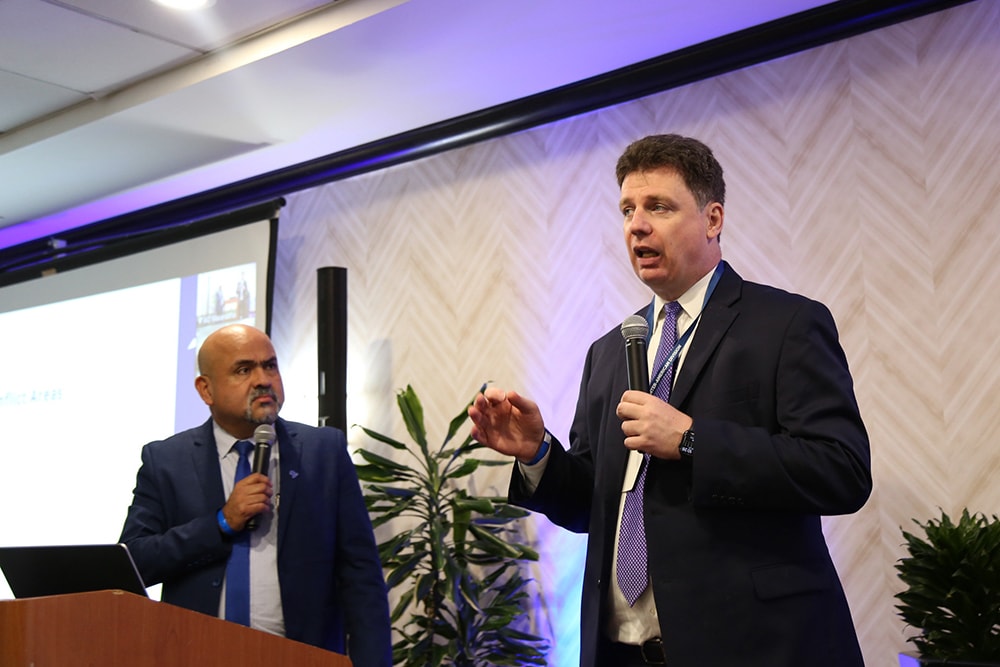
Every person, no matter their life choices, should feel welcome in a Seventh-day Adventist congregation, according to Todd McFarland, deputy general counsel of the General Conference of Seventh-day Adventists. McFarland’s statement was part of a presentation he gave on gender issues in the Adventist Church on July 25 at the 2023 Inter-American Division’s (IAD) Segment Leadership Development Conference (SeLD). The annual event, which provides training and information on managerial, theological, and organizational topics for hundreds of church leaders, followed a hybrid in-person and online attendance model this year.
Church’s Statement on Transgenderism
In the first part of his presentation, McFarland explained some of the implications of the Seventh-day Adventist Church’s official Statement on Transgenderism. The 2017 document doesn’t cover every possible instance but provides general principles to tackle a mostly recent phenomenon known as gender dysphoria, or the misalignment of sex and gender identity that causes distress, McFarland said. “According to Scripture, our gender identity, as designed by God, is determined by our biological sex at birth,” he quoted from the Statement on Transgenderism.
The church’s statement emphasizes that “although gender dysphoria — a recognized medical condition — is not intrinsically sinful, it may result in sinful choices.” It adds, “As long as transgender people are committed to ordering their lives according to the biblical teachings on sexuality and marriage, they can be members of the Seventh-day Adventist Church.”
Transgender People in the Church
Gender dysphoria may result in cross-dressing, gender re-assignment surgery, and the desire to have a marital relationship with a person of the same biological sex, McFarland said as he quoted the statement. But no matter what choices a person has made, he emphasized, “The church as the community of Jesus Christ is meant to be a refuge and place of hope, care, and understanding to all who are perplexed, suffering, struggling, and lonely.... All people are invited to attend the Seventh-day Adventist Church and enjoy the fellowship of its believers.”
He explained his point further. “As a church, we are used to dealing with people who make choices different to what we believe. And how we relate to that is extremely important. Do we embrace them, or do we kick them into utter darkness?” he asked.
McFarland emphasized that being kind to everyone does not necessarily mean that we agree with a person’s life choices. “In our churches, we accept people who do not keep the Sabbath or follow the church’s teaching about diet,” he said. “We don’t force everyone to believe what we believe before inviting them to fellowship with us. The same applies to transgender people. Transgender people should feel welcomed in our churches, even if they are not members. Just being a transgender and living as such should not disqualify a person from fellowship.... All people, including transgender persons, should feel loved and accepted in a Seventh-day Adventist church.”
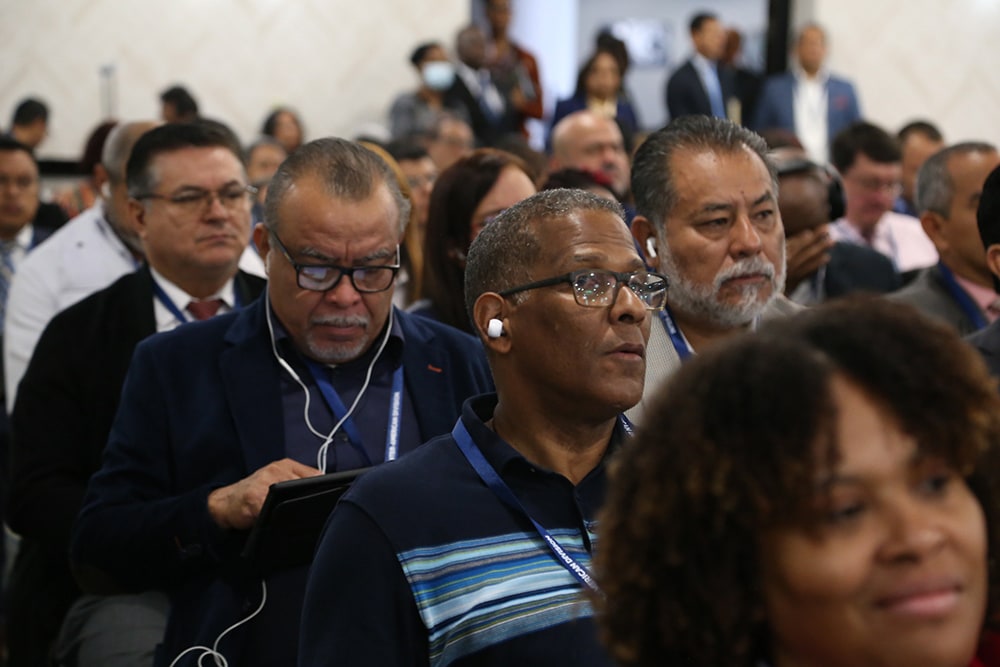
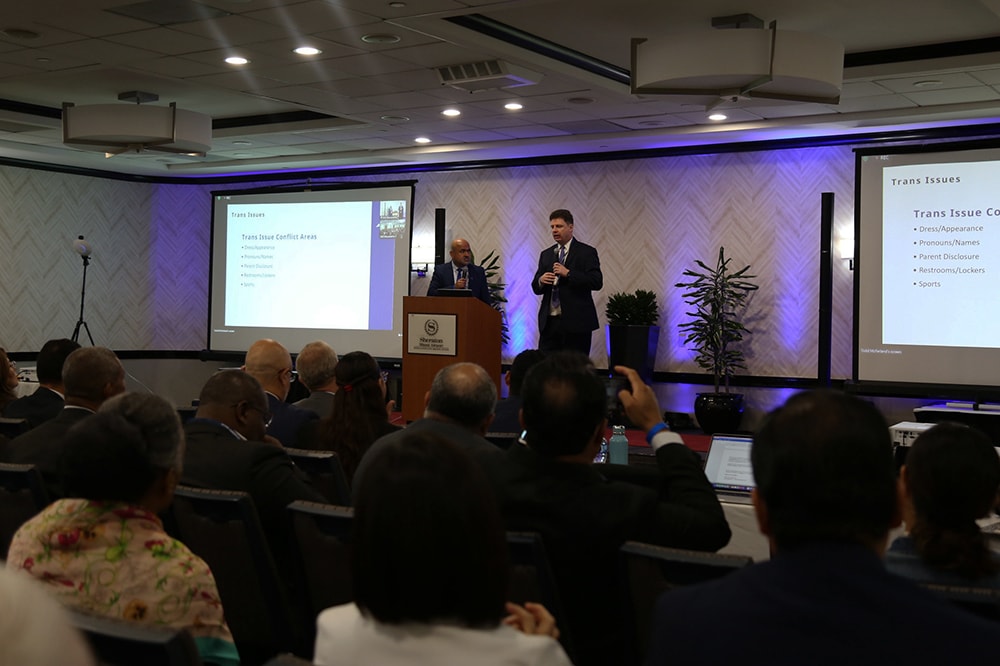
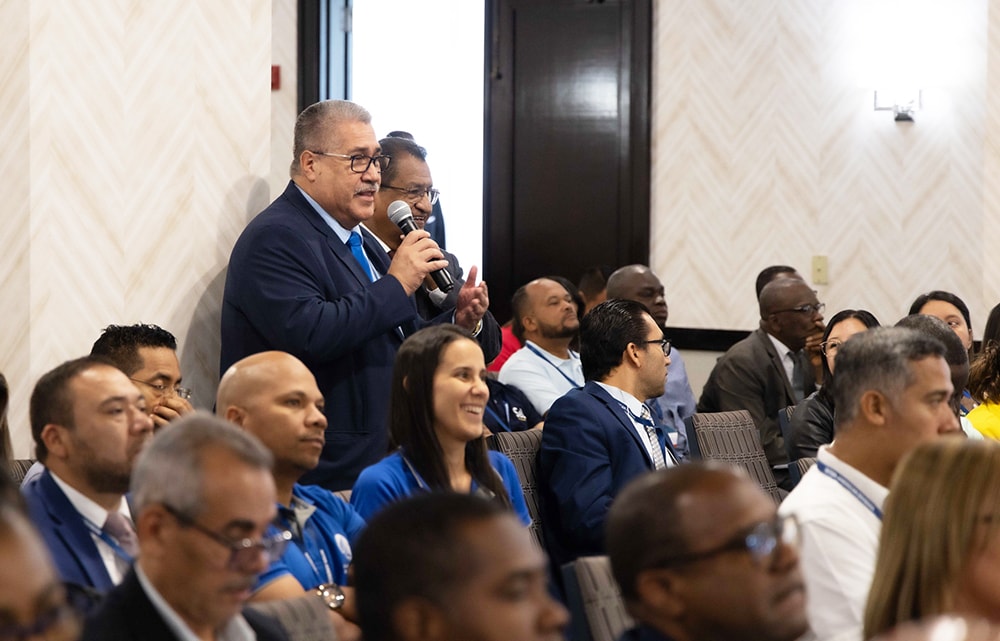
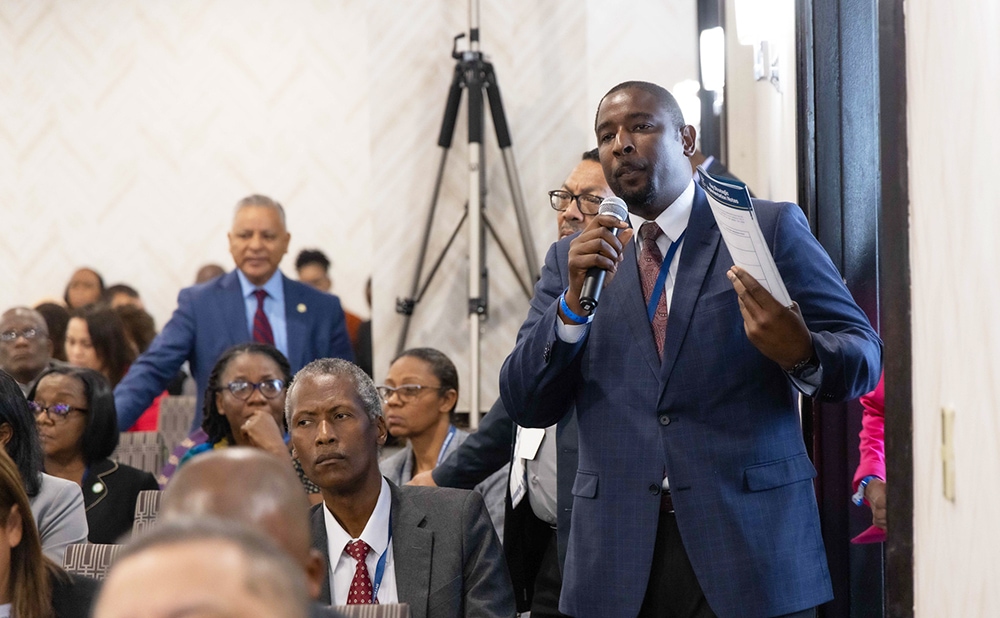
What Local Churches Can Do
In practice, the presence of transgender people in Adventist congregations and institutions may have the potential for areas of conflict, including issues of dress and appearance, use of pronouns and names, use of restrooms and lockers, and sports. McFarland reminded Adventist leaders that the church’s statement covers general principles and describes some inappropriate choices but does not cover every instance at every local congregation.
As local church pastors and members may have witnessed, some people who come to the church and get to know the Adventist message are carrying the consequences of decisions made many years before. “In such instances, a local church should relate to them on a case-by-case basis,” he advised, “always taking into account what the church’s statement and the church’s manual say.”
Overall, McFarland said, it is very likely that these issues are here to stay, and in the future, they may include reputational risks for the Adventist Church. “Some people are viewing trans issues as equivalent to race discrimination,” he said. “While I think these topics are different, some people believe they are the same.”
McFarland advised his listeners to reinforce the historic Adventist stance, which includes allowing for every person’s freedom of conscience, following Christ’s example when dealing with people far from God’s ideal, and, when in doubt, consulting with the relevant institutional bodies.
“When an issue arises at the local level, call your conference, union, and division,” McFarland advised. “There are people who can assist you in dealing with these issues.”
Feedback From Leaders
For Erixson Surisaday Barrios, a district pastor of seven churches in Guatemala City, Guatemala, hearing leaders talk about gender issues is long overdue for the church. He wished that he had known more eight years ago when a young person struggling with his sexuality approached him. “I failed to have a compassionate answer for him in my intent to defend the biblical principles, and I believe it caused more damage to him. I’m ashamed of that,” Surisaday said.
The experience drove him to understand better the biblical perspective and learn about epigenetics — or the study of how the environment can affect the way a person’s genes work or how the body reads a DNA sequence. “It’s a very complex issue, and the church needs to understand these issues, talk about it more. Communication from top administration to the rest of us will be key so that we will not be afraid to approach these issues in the best way possible,” he said.
It’s been a learning experience, but it’s clear in his mind that using a supportive response to individuals struggling with gender issues and offering alternatives without transgressing the theological principles can work. “I wish to have been able to show this young man that he has a loving church and a pastor willing to help him through his struggle, in the study of the Bible, and point to specialized professionals that can assist him as well,” Surisaday said.
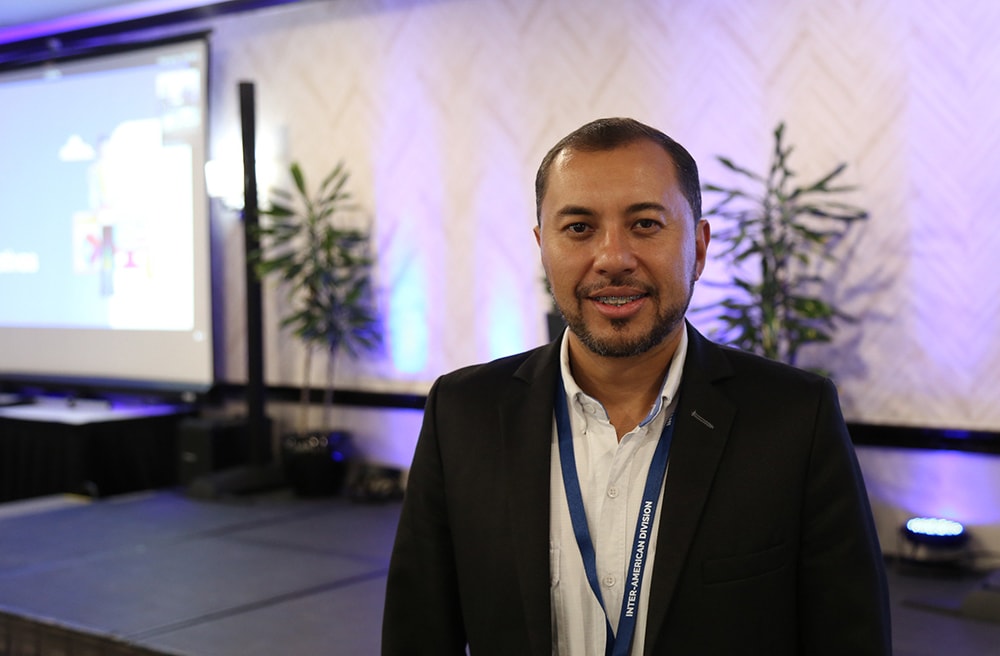
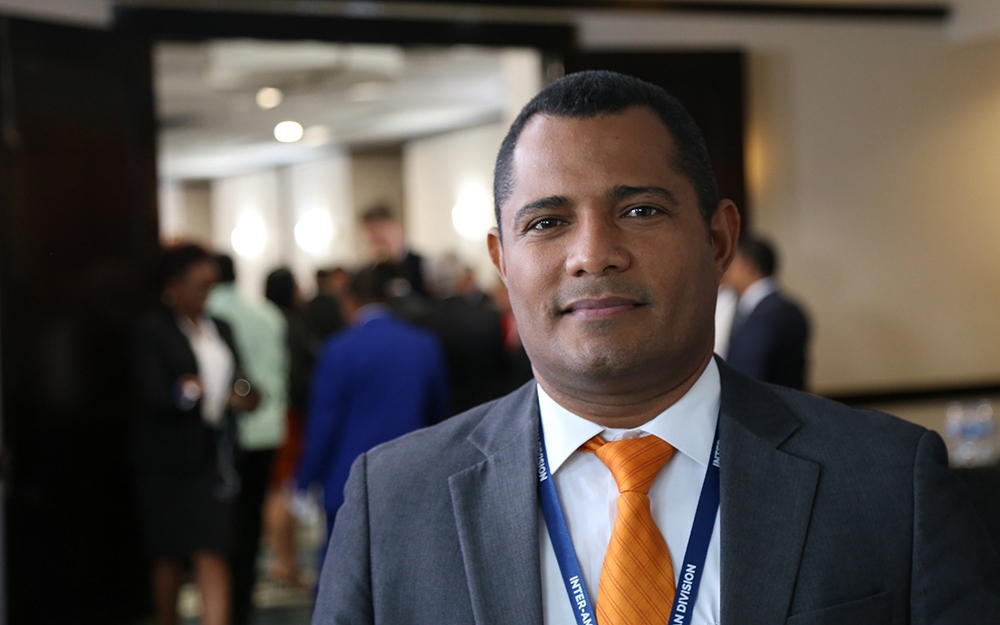
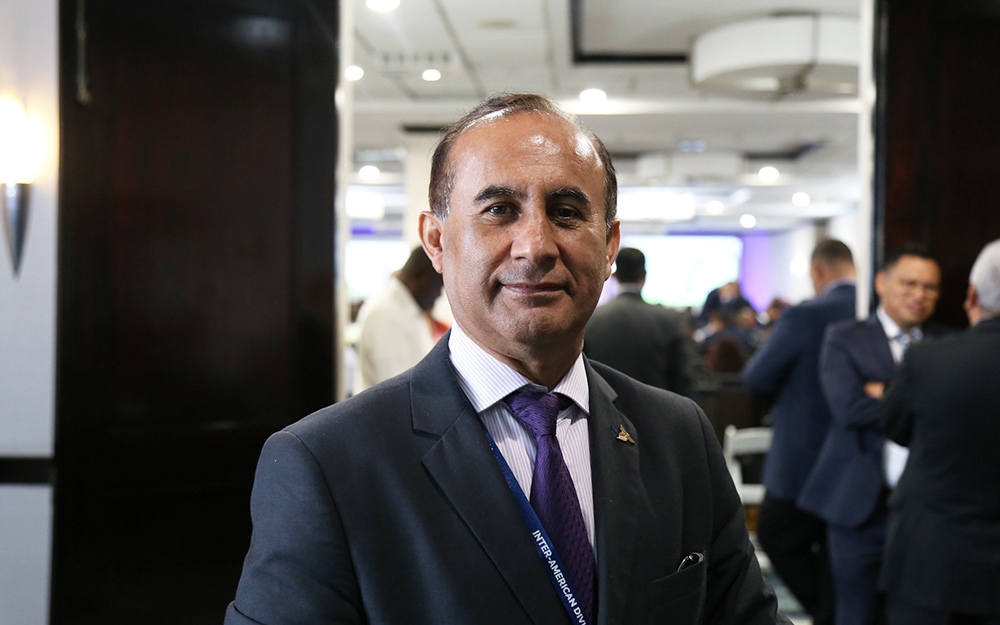
Navigating Through Real-life Cases
For Julio Rodríguez, who serves as executive secretary of the Atlantic Colombian Conference, addressing issues a person may have with their sexual preference can be challenging. As he was leading a small group worship service in a community, there was a man in attendance who had been mourning the loss of his male partner.
“I began studying the Bible with him about the state of the dead and biblical principles, and this individual was convinced, understood everything, but after months of studying, he just left frustrated because he wanted to be assured that he would find his husband in heaven,” Rodríguez said.
Rodríguez believes that gender issues need to be talked about more among church leaders. “We need to find better ways of connecting in a loving way with those struggling with these gender issues; it’s a pressing issue,” he said. Rodríguez said he plans to present the subject during his upcoming conference congress with hundreds of church elders and 27 district pastors.
Cesar Hernández, president of the Azteca Mexican Conference in Mexico City, said it’s important to study the declaration of the church on gender issues to better face issues that come up in the church and schools. “A lot of individuals claim human rights when it comes to gender issues, and it’s important to navigate them very carefully, ensuring we do not contradict our biblical beliefs but be a compassionate church toward these issues,” he said.
Need for More Dialogue
The church has had to deal with several cases in Hernández’s territory, which has a membership of more than 20,000. In one of the largest Adventist schools there was a middle schooler who was struggling with his orientation. His parents, who were church members, decided to take the child out of school and handle it as a private family matter. This prompted school officials and staff to provide deeper biblical principles to students as part of the curriculum. “Kids nowadays play with apps that ask questions of their gender preference and may sometimes be influenced by suggestions or by their friends [that] lead them to question their identity or orientation,” Hernández said.
There is no doubt more issues will come up, he added. Hernández said he’s planning to meet with the 20 pastors in the conference during their monthly meeting to begin talks about the subject, about issues that come up in their congregations, and how to best navigate through the complexities of gender issues. “We need to start learning about how to face these challenges together as a church to best represent Jesus in every situation,” he said.
The original version of this story was posted on the Inter-American Division news site.